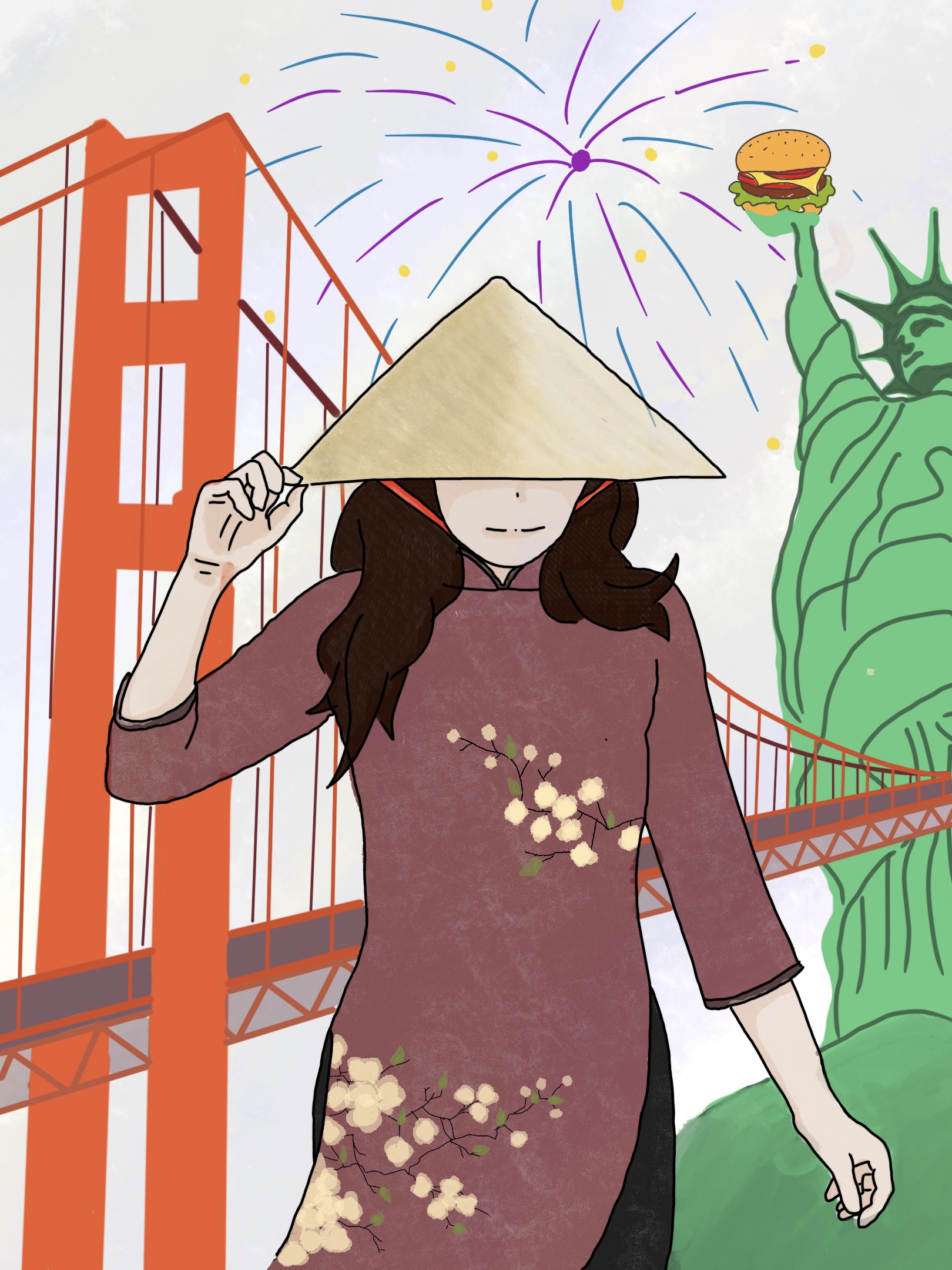By Stephinie Phan, Art Director
In 2021, the Pew Research Center initiated a focus group study to learn more about the lived experiences of Asian Americans in the United States. It’s a lengthy report, but there was something about the first sentence that has kept ringing in my ear, like the sharp sound of a bell.
“No single experience defines what it means to be Asian in the United States today.”
In my 24 years as a Vietnamese American, I’ve heard a lot of words and phrases that have tried to tell me about who or what I am and what I represent. Words such as “diversity,” “inclusivity,” and “community building.” There are value judgments like, “You’re too ‘American’ to understand” and my personal favorite, “Go back to where you came from.”
I should probably consider all those words as nothing more than the willful ignorance of a stranger, but honestly, they cause me pain sharper than any tool ever could.
The truth is, I have realized just how much I value diversity and my sense of cultural identity. The experiences, people, media, and environments that have influenced me over the years are what makes me, well, me. Like many other students, it wasn’t until I started university that I really understood why organizations and clubs exist for students, the push for them.
“I never felt fully connected to my culture until I went to college, where there were more [Asian and Pacific Islander] folks,” said Nathan Nguyen, the director of the CSUDH Asian and Pacific Cultural Center. “There was more culture [and] more diversity where I was, like, ‘Oh, this is the time for me to explore my identity and who I am’.”
While it isn’t necessarily unique for people like me to experience challenges with regard to cultural identity, it’s still nice to know I’m not the only one “going through it” sometimes.
There’s a new Korean-based reality cooking show on Netflix, for example, called “Culinary Class Wars.” One of the contestants, Edward Lee, is a well-known Korean American chef and author. Although his Korean is spotty at best, Lee said his participation on the show was his way of embracing his heritage.
“I have an American name, Edward. But I, too, have a Korean name,” Lee said. “My Korean name is Kyun.”
Just like the first sentence in the Pew Research Center report, Lee’s assertion of his cultural identity struck a chord with me. That line alone made watching the entire series worthwhile.
A person’s identity is defined by more than just their roots. While I am still nowhere near figuring out fully who I am. I have learned to never refuse an opportunity to learn about my culture and all the different ones out there. Have that open communication with all sorts of people and embrace those who are different then you with open arms.

